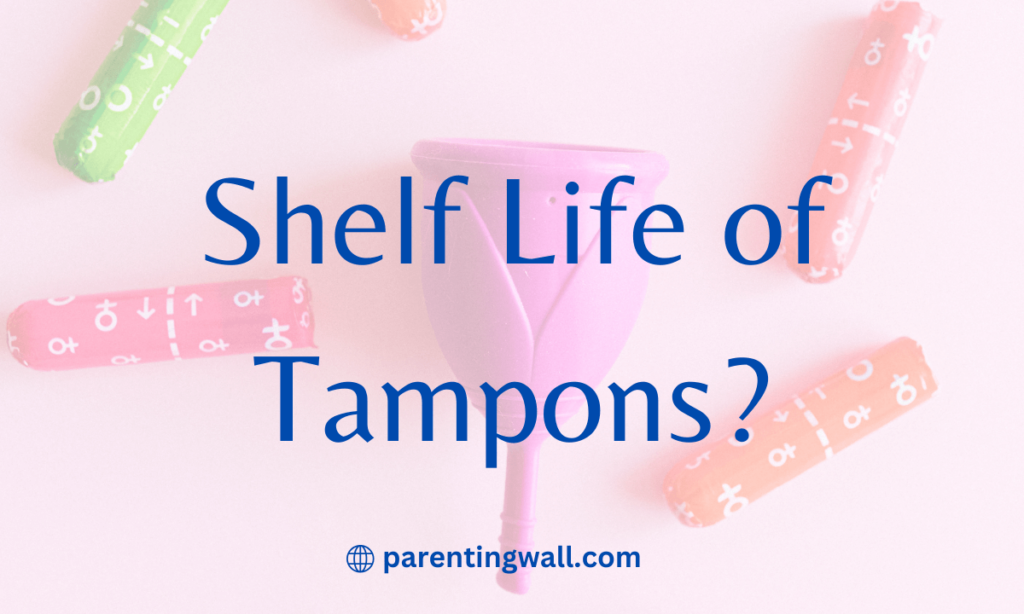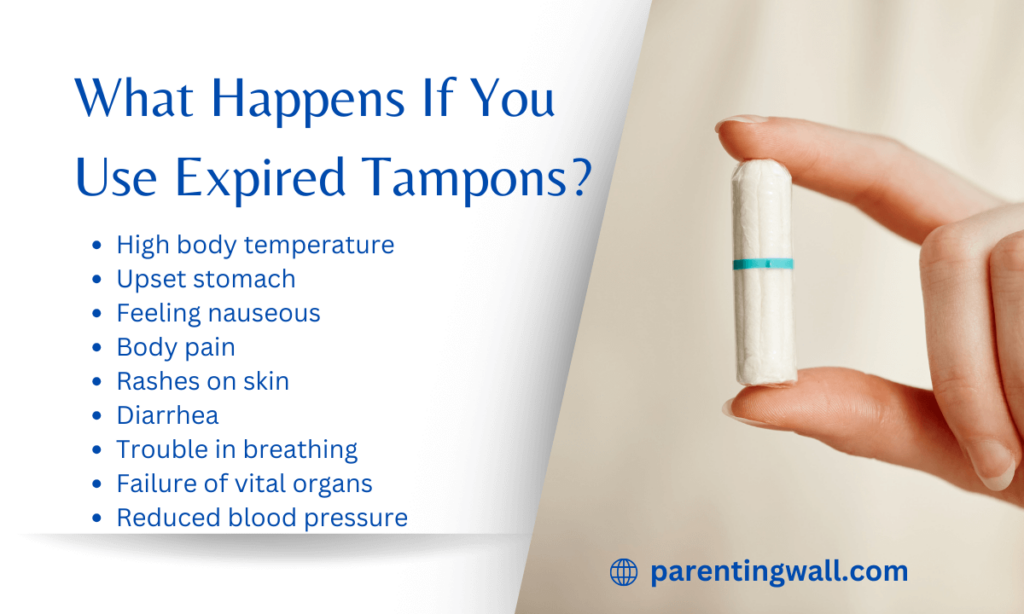Tampons are lightweight absorbent cotton, rayon or a blend of both. Tampon is a product that helps prevent leakage during your period. Unlike pads placed in your underwear, tampons are worn inside the body. Tampons are a great way to prevent leakage before it has a chance to leave your body.
Tampons have become a widely used menstrual product, offering women a practical and reliable way to manage their menstrual cycles. It is important to note that women’s fertility depends on the menstrual cycle, and tampons can be helpful in their menstrual cycle.
Keep reading this article to learn more things about do tampons expire. How long do tampons last? How to identify an expired tampon? and many more unknown facts.
Do Tampons Expire?
What if you find a spare tampon packet in your bag that you haven’t used for 1 year? and wondering if it’s safe to use. Can I use it even after its expiry date? Well, It depends on its shelf life, how old it is and other factors.
The short answer is yes, but their shelf life is longer. However, if the product is properly stored, it will be expected to meet the quality standard. Although tampons are clean, they are not sterile. So mold and bacteria can develop due to their composition and storage conditions.
To avoid using expired tampons, check the tampons expire date on the back of the purchased tampon boxes. Many tampon brands do not show a clear expiry date, in that situation mark your purchased packages with the month and date of purchase especially if you buy in bulk.
Keep your Tampon Safe
Tampons absorb moisture and create an ideal breeding ground for harmful bacteria. The combination of moisture and heat can enable bacteria to establish themselves and grow.
However, most of us keep our storage in the bathroom cupboard, for example the shower top, which is the perfect hot, sauna-like environment for germs to the breeding ground. If the bathroom in your home is especially hot, think about keeping the items in a cool black cabinet.
How Long can you Keep Tampons?

Five years, You can keep tampons for as long as five years after they’re produced. Not more than 5 years. But the original tampon packaging doesn’t always indicate how long you can keep tampons. Some manufacturers simply display the date of production and tampons expire date on the tampon box. But the fact and answer of a do tampons expire is that Yes, tampons have expiration dates, which are typically up to five years of shelf life.
While some theories suggest that tampons last for as long as 5 years, it’s crucial to remember that there’s no industry-wide and/or FDA standard shelf life for the tampons. Most of us are using the tampons we’ve bought before having to worry about them running out. The general rule of thumb to determine shelf life is always five years.
Tampons are made from cotton, which is vulnerable to harmful foreign bacteria. These harmful organisms could alter the vagina’s pH and may cause problems with your vagina.
How Can You Properly Store Your Tampons?
To properly store your tampons, the first step is to check that the slightly ripped wrapper is not slightly torn, open or cracked because this creates a way for visibly moldy bacteria to enter and infect the tampon.
To keep tampons fresh, store them in their original packaging to avoid exposure to harmful bacteria and perfumes. Avoid storing them in humid places like the bathroom where mold can grow. Instead, store them in a cool, dry place like an airtight container.
Make sure to keep your tampons safety standard and consider their contents during travel. It’s common for people with periods to store tampons in their bags, for example, but it’s important to visually inspect them before use, even if they’ve been stored for a while.
By doing things such this, you must ensure that the packaging remains intact with a delicately balanced microbiome. If not an acceptable option, then you shouldn’t use it because moisture, mold, and even bacteria might have made it into the product. When the package is in good condition but not sealed, what you should do next is to take note of and remove any smells or stains.
If the tampon displays any of these or both, you shouldn’t use it. Regardless of only one tampon, you end up buying or using, don’t forget to change your tampon before eight hours of use.
How to Determine if it is an Expired Tampon?
Even if you have forgotten the exact date you bought the tampon, whether it was a year or six years ago, you shouldn’t use tampons that do not appear brand fresh.
Tampons that are old and expired could get discoloured and contain some form of a moldy tampon. Most likely, you’ve not been told of anyone becoming sick because of using an expire, damp tampon, because nobody has been putting a moldy tampon into their own vagina.
Still Wondering, Do Tampons Expire?
The majority of tampon brands don’t have a specific expiration date. Tampons will last for a long duration when stored in a dry location. Tampons show an expiry date on the tampon boxes.
They display two dates: the date of production and the month and year in which they expire. If you are using tampons, you don’t have to worry or guess what to be concerned about.
There aren’t any guarantees on the appearance of a tampon to tell if it is deteriorating. It’s likely to get moldy if the seal is damaged, in addition to dirt or potentially infection causing organisms getting into the proper packaging.
Never use a tampon if you notice some potential signs of irritation like:
- Discolouration
- Strange odour or funky smell
- Mold growing
So, if you are unsure, you should throw it out. It is best to throw away half the tampon and buy a new box of tampons.
What Happens If I Use Expired Tampons?

Utilizing a moldy tampon can trigger health conditions symptoms such as itching, irritation, cramp, infection, and an increase in the discharge from your vagina. The issue should be resolved and go away on its own when the vagina returns to its normal pH levels after the period.
In rare instances, using the expired tampon could result in toxic shock syndrome (TSS). The risk is slightly higher if the tampon is kept in for longer and at more serious concentrations than recommended. TSS is a condition that occurs when toxins from bacterial infections are absorbed into the bloodstream.
It can be life-threatening; if you witness some definite signs, immediately seek medical assistance. Also can cause death and similarly disrupt body and mind and functioning if not detected and treated promptly.
Some common sense rules include consulting your physician if the symptoms persist for a period more than a few days. They could prescribe an antibiotic to treat any infection that may be present.
Other common symptoms you may experience after the use of expire tampon is:
- High body temperature
- Upset stomach
- Feeling nauseous
- Body pain
- Rashes on skin
- Diarrhea
- Trouble in breathing
- Failure of vital organs
- Reduced blood pressure
Pro Tips for Using Tampons
Remember to change your tampon after every 4 to 8 hours.
To maintain proper hygiene, wash your hands before and after using a tampon.
It’s important to read the instructions provided in the package carefully.
If you experience pain, fever or any unusual symptoms, please contact your healthcare provider.
FAQs
1) Does Tampax go out of date?
Most tampons like Tampax Tampons show the expiry date on every new box. They display two dates: the date of production and the month and year that they’ll expire. Therefore, if you’re using Tampax, you don’t have to guess what is required.
2) Do sanitary products expire?
Yes. Tampons and pads do expire. Always check the expiration date, and keep them in a cool and dry location to extend shelf-life.
3) Why do tampons expire?
Yes, tampons have an expiry date. They are made of cotton, which is vulnerable to mold and bacteria. So the moment you place your Tampons in a warm and moist area, it is likely that they will be absorbed by harmful bacteria and turn moldy, containing a naturally acidic microbiome. Nobody would like to place a contaminated tampon into their own vagina.
4) Can you pee with a tampon in?
Yes, you can pee with a tampon in. Tampons are designed to absorb menstrual flow, and they are placed in the vagina, which is separate from the urethra. Peeing while wearing a tampon shouldn’t cause any issues. However, it’s important to change tampons regularly to maintain hygiene and prevent discomfort.
Conclusion
Generally speaking, most young women use tampons due to their personal preference or parental influence to ease, comfort, and style. Some girls prefer sanitary napkins, while others appreciate the convenience and ease of Tampons.
They allow you to stay in to shower and stay active throughout your period without worrying about stains on your clothes. If your box of tampons does not have an expiration date, begin with a habit of writing down the month and year on the back of the box.
Some proper storage tips for tampons include placing them into an air-tight container in a sterile environment and throwing away those with damaged seals or showing visible indications of mould. Use a tampon stored in a cool, dry place.
So, if you notice any discomfort or uncomfortable symptoms following the use of the tampon, schedule an appointment with your physician and change or remove the tampons immediately.



